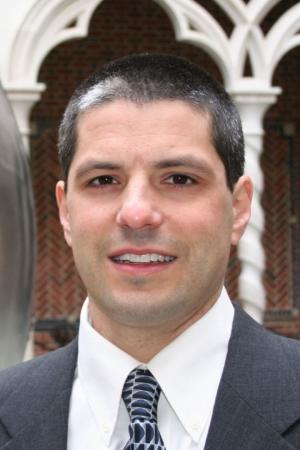A student-attorney in the Intellectual Property & Technology Law Clinic, directed by Professor Patricia Campbell with the support of Professor Andrew Dhuey, helped Professor Christopher Cotropia, file an amicus brief in a pending case in the U.S. Supreme Court, Cox Communications v. Sony, this month.
Filed on behalf of Professor Cotropia and a former colleague, Professor Jim Gibson of the University of Richmond, the amicus brief argues that the Fourth Circuit court fundamentally misunderstood Cox’s rule as a conduit Internet Service Provider. The Cox v. Sony case comes to the Supreme Court on appeal from the Fourth Circuit, which ruled that Cox, as a service provider, can be held liable for “materially contributing” to copyright infringement.
Professor Cotropia’s amicus brief is grounded in a 2020 article he and Professor Gibson published in the Iowa Law Review, discussing the convergence and conflation between the Digital Millennium Copyright Act (DMCA) and copyright liability for intermediaries like Cox. They argue both in the article and in the amicus brief that Cox’s role as a conduit Internet Service Provider is to provide access to the internet, not to store or house content.

“Unlike platforms that host files or videos, Cox does not control or house the infringing material,” Professor Cotropia said. “Yet the Fourth Circuit blurred the line between statutory standards under the DMCA and the judicial doctrine of contributory liability. In our view, that conflation led the Fourth Circuit to get material contribution wrong.”
The case is particularly significant because it could mark one of the first times a conduit–Cox–is held liable for users’ infringements, Cotropia said.
“The potential remedies are extreme: entire households, apartment buildings, or businesses could lose internet access if even one individual at that IP address had previously infringed,” he said. “The implications go well beyond Cox, potentially affecting ISPs like Verizon and Comcast, as well as other fiber and cable providers nationwide.”
Before the start of Labor Day weekend, Cotropia reached out to the IP & Technology Law Clinic at GW, asking for assistance in drafting the brief on a short deadline. Student-attorney Michelle Horowitz (Class of ‘26), stepped up.
“She worked almost nonstop through the holiday, contributing research, drafting, and editing,” Cotropia said. “By Wednesday, five days later, we had the brief finalized and sent to the printers.”
The opportunity to work on the brief was invaluable, Horowitz said.
“Supporting the Cox v. Sony amicus brief through the IP and Technology Law Clinic was a defining law school experience — it demanded precision, judgment, and collaboration under pressure,” Horowitz said. “In just a few days, I gained a deeper understanding of the case itself — its history, its details, and the issues at stake — and saw the professors’ discipline and craft in shaping arguments that endure. I had the extraordinary guidance of Professors Cotropia, Gibson, Dhuey, and Campbell, whose work showed how scholarship and advocacy can move in tandem to shape the law.”


